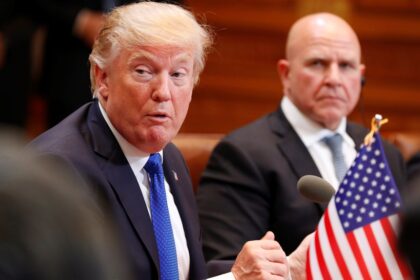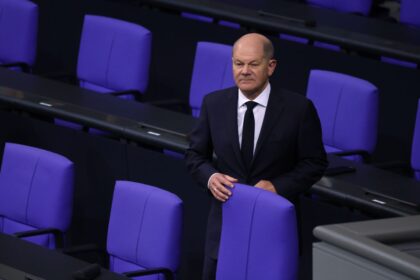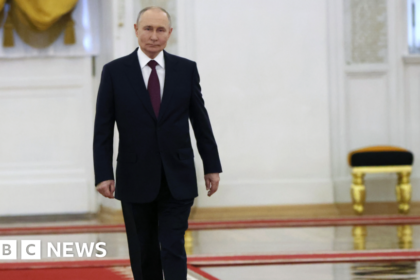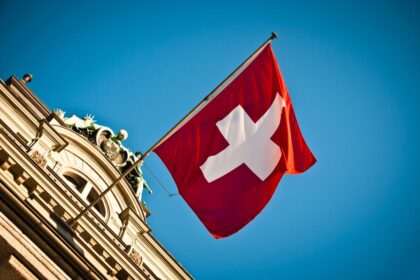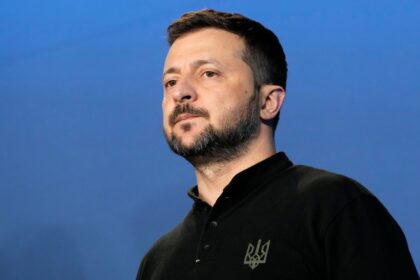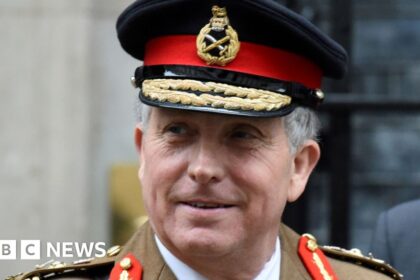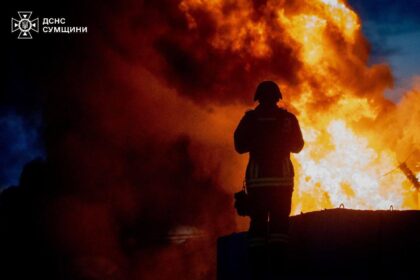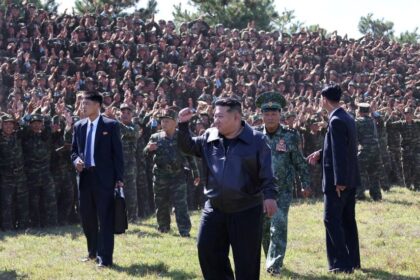**US President Trump Reiterates Support for Russia’s Annexation of Crimea**
In a recent interview with Time magazine, US President Donald Trump reaffirmed his stance that Ukraine’s desire to join NATO triggered Russia’s full-scale invasion. He also stated unequivocally that Crimea “will stay with Russia.” This assertion has sparked controversy, as it contradicts the historical record and international law.
Trump’s comments came amidst efforts by the Trump administration to broker a peace agreement between Russia and Ukraine. A draft plan presented in Paris last week reportedly includes US recognition of Russia’s annexation of Crimea and a ban on Ukraine joining NATO. If implemented, this move would go against a decade-long bipartisan consensus in Washington and international law.
**The Historical Record vs Trump’s Assertion**
Ukraine has publicly expressed interest in joining NATO since the early 2000s, including during the 2008 Bucharest Summit, without triggering war. Russia’s full-scale invasion in 2022 was widely condemned as an unprovoked act of aggression that violated international law and Ukraine’s sovereignty.
President Volodymyr Zelensky has firmly rejected any peace deal involving territorial concessions, stating that “This violates our Constitution. This is our territory, the territory of the people of Ukraine.” Trump, however, has denied pressuring Ukraine to accept Crimea’s annexation but has criticized Zelensky’s refusal to consider it as “harmful to the peace negotiations.”
**Strong Backlash from Former Leaders and Analysts**
The proposed peace plan has sparked a strong backlash even among Trump’s backers. Former UK Prime Minister Boris Johnson called it a “reward for Russian aggression” that risks allowing Moscow to regroup for another attack.
Meanwhile, Ukraine accepted a US-proposed 30-day ceasefire contingent on Russian participation. However, Moscow has rejected the proposal and continues offensive operations across Ukraine’s front line. Despite expressing frustration with Russia’s failure to de-escalate, the Trump administration has yet to impose new sanctions or take other steps to pressure the Kremlin.
**Analysis: A Move That Risks Undermining International Law**
The proposed peace plan risks undermining international law and emboldening Russian aggression. The US recognition of Crimea as part of Russia would be a significant departure from a decade-long bipartisan consensus in Washington. It also contradicts the historical record, which shows that Ukraine’s interest in joining NATO has been public knowledge since the early 2000s.
The proposal is likely to face strong opposition from within the US and internationally. President Zelensky’s rejection of territorial concessions is a clear indication that Ukraine will not compromise on its sovereignty.
**Commentary: A Misguided Approach to Conflict Resolution**
The Trump administration’s approach to conflict resolution in Ukraine appears misguided, prioritizing short-term gains over long-term stability and security for the region. The US should focus on promoting a negotiated settlement that respects Ukraine’s sovereignty and territorial integrity, rather than sacrificing these principles for a peace deal.
Ultimately, the proposal highlights the need for a more nuanced understanding of the complexities surrounding Ukraine-Russia relations. It also underscores the importance of maintaining a bipartisan consensus in Washington, particularly when it comes to critical issues like national security and international law.
Read More @ kyivindependent.com





